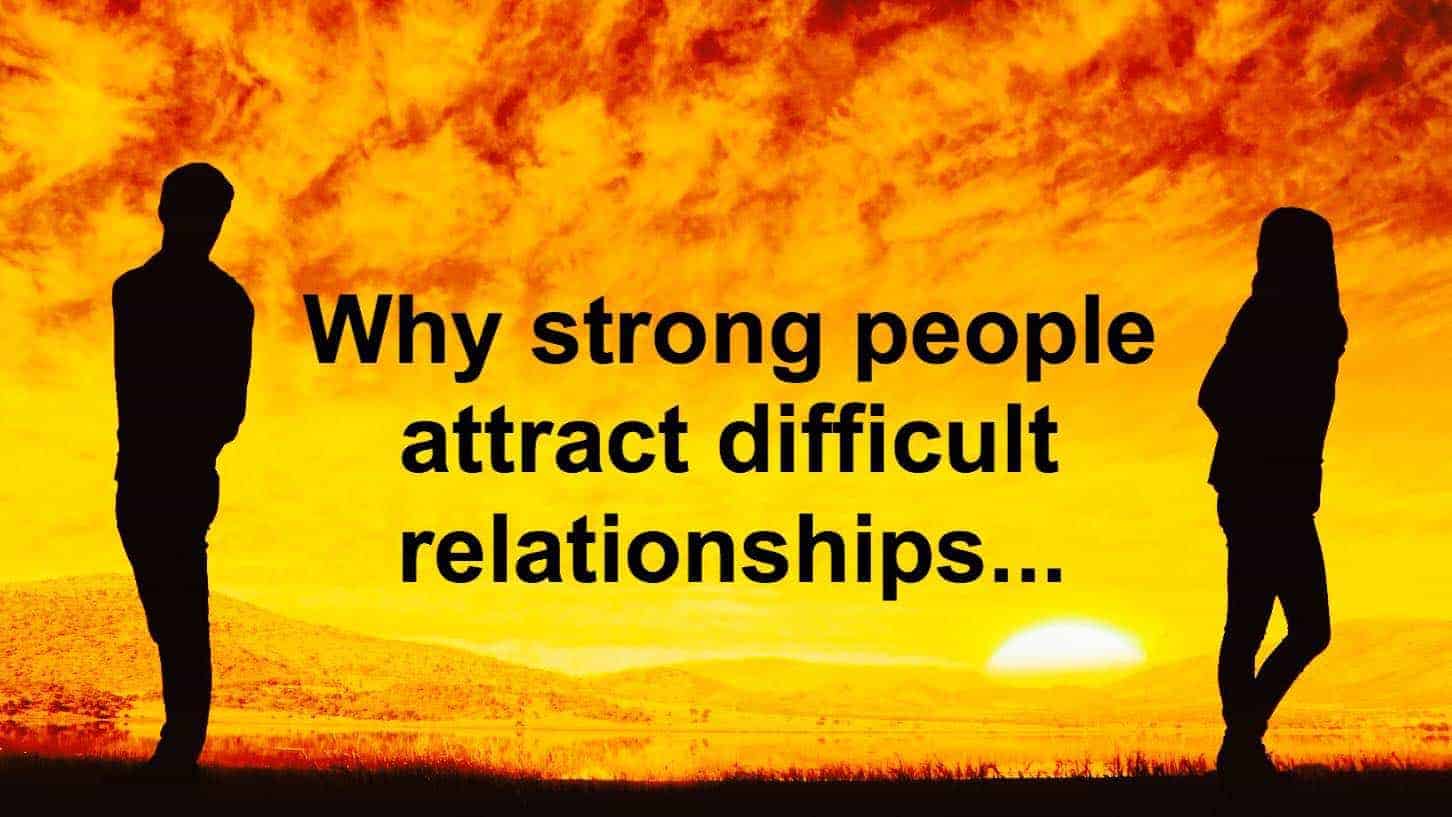Healthy relationships are incredible to be a part of. It’s no wonder that everyone seeks out these positive, happy partnerships when looking for a significant other. But a lot of toxic habits in relationships go overlooked because they seem small or unimportant.
This is why it’s so important to take note of unhealthy behavior and focus on creating positive habits for a good, long-lasting, mutually satisfying relationship. Here are some things healthy relationships do, and some things they don’t.
10 Things Healthy Relationships Do, And 10 Things They Don’t
1. Respect of Privacy (Not Oversharing)
When you love someone, you like to talk about them. In a healthy relationship, though, there’s a clear line that is not to be crossed. Sure, you and your closest friends might giggle about something romantic your partner does or roll your eyes at some silly trait your partner has – but there are things you just don’t talk about.
Your partner might share deep dark secrets with you in confidence that you shouldn’t then spread around to other people, even if they promise not to tell anyone. If your partner finds out, they could feel betrayed and it will affect their overall trust in you.
The same goes for fights and disagreements. While it’s okay to rant to a trusted person on rare occasions, for the most part, your arguments with your partner should be between you. Bringing in third parties that will give you biased opinions or cause you to view your partner more negatively shows huge disrespect for your partner.
2. Independence (Not Codependence)
A relationship that is healthy should feature two whole, independent people staying together because they want to be together – not because they feel like they need to. This means each person should have no trouble doing activities on their own, such as:
- Going out with their own group of friends
- Following unique career paths and dreams
- Enjoying their own hobbies
- Taking me-time to themselves to rest and recuperate
This doesn’t mean you aren’t involved in each other’s lives, or that you don’t include each other in them. It just means that you have your own lives, too, which is a very positive trait in healthy relationships.
In unhealthy partnerships, one person may feel jealous or envious of the other person’s life, career, or friends. This stems from neediness, insecurity, and a validation-seeking nature that can be detrimental to a relationship in the long run. They may then resort to guilt-tripping, manipulation, unreasonable rules, and even forceful behavior to get what they want.
3. Giving Happily (Not Giving To Get)
Giving is a standard part of many relationships, but only a healthy one gives in a positive way. The good, healthy type of giving involves happily doing so in a free manner, without expecting something in return. You like seeing your partner happy, and they like seeing you happy, so it feels natural to give and make the other person smile.
Meanwhile, a toxic relationship never gives – unless it is seeking to get in return. This creates an air of distrust and discomfort within a relationship. You may worry that your partner’s gift means they are about to betray you or have done something wrong.
The same goes for soliciting giving. In a healthy relationship, both parties give freely. In unhealthy ones, you may feel like you have to give, or else. A partner might perform guilt tripping behavior in order to receive something from their significant other.
4. Support (Not Discouragement)
In a healthy relationship, your significant other is always there to support you. They inspire you and motivate you, pushing you to be better. When you go after your goals, they support you wholeheartedly and are there for the ride. And when you succeed, you can bet a million bucks that they’ll be right there celebrating with you!
But in unhealthy relationships, there isn’t this same level of support. Instead, you might feel discouraged. This can happen in a few different ways.
· Feeling stuck
You might feel actively discouraged when you think about your future because you need to make sure it is suitable for your partner – and that involves going in the opposite direction than you want to.
· Lacking confidence
Your partner may bring you down and convince you that you cannot succeed in chasing your dreams.
· Envy
If you have a competitive partner, they may become bitter when you succeed. They may feel extremely envious whenever you’re getting ahead in life, causing you to feel guilty for doing well.
· Jealousy
Your partner might stop you from following your dreams for fear that you will drift away from them. They might actively hold you back in order to keep you around.
5. Equality (Not Superiority or Inferiority)
A healthy relationship features equality. Both partners respect each other and consider each other equals in every way. There is no concept of someone deserving more than the other in any area, including:
- Money
- Freedom
- Free time
- Work
- Benefits
- Respect
- Listening
This means finding compromises in a lot of areas. If one partner works 9 to 5, the other will take on extra chores. If both parties work, they split chores and errands between them. There isn’t a case of someone sitting in front of the television while the other person runs around doing all the household tasks and parenting duties.
An unhealthy relationship features ego dynamics that cause superiority battles. This isn’t just about chores, though; it’s also about entitlement. One person may feel like they deserve to be constantly listened to but never listens to their partner. Or a partner may feel like they are owed intimacy-related favors because they did extra chores.
6. Fighting Against A Problem (Not Against Each Other)
Fights aren’t pleasant, but when handled in a positive way, they can help a relationship grow stronger. If the idea of a good argument sounds foreign to you, take a look at these ways that fighting can be done healthily in a relationship, compared to unhealthy fighting habits.
· Learning
When you fight, you learn more about each other. You get better insight into your partner’s needs and, if you play your cards right, you’ll be able to understand them more and see how to prevent such disagreements in the future. You will also gain knowledge on how to better handle the situations that led to the fight.
A person in an unhealthy relationship, however, will collect this information as ammunition to use against their partner in the future. They don’t seek to learn from this fight to prevent future ones – they seek to learn so they can “win” the next one.
· Compromise
A healthy fight involves compromise. You have two different opinions or preferences, and you have to find a win-win solution. It takes a lot of work and effort from both parties, but there is always an option that will make both of you feel relatively satisfied.
On the other hand, an unhealthy fight is selfish. A partner in this situation will insist on having things done their way, refusing to budge. This will either cause a never-ending argument or result in someone being forced to give in.
· Togetherness
The goal of an argument should always be solving the issue. This means you and your partner are fighting against the problem – you aren’t fighting against each other.
In a healthy relationship, this is apparent. Both people try to stay calm and promote good discussion while keeping their positive thinking. Meanwhile, in an unhealthy relationship, both people are so concerned about preserving their pride and “winning” that they can’t find the solution they need.
7. Security and Trust (Not Jealousy)
In healthy relationships, you and your partner will feel secure with each other. You will trust each other without question; it’s great to come home at the end of the day to a place you know is safe, and a person you know loves you no matter what.
This also gives both partners more freedom. They have their own friends and lives while still feeling secure in the love they share with the other person. It’s a very important feature in a healthy relationship.
But in unhealthy relationships, a partner – or both – will be insecure. They will feel jealous about other connections a partner has, act in a controlling manner, or sneak through text messages to look for incriminating evidence. This creates a lack of security in the relationship that makes it feel unsafe and volatile.
8. Forgiveness (Not Resentment)
You and your partner are human. You will make mistakes sometimes. But when it’s all said and done and it’s all been hashed out, you are both ready to forgive each other and put it behind you – that’s a healthy relationship.
In an unhealthy relationship, one or both members have difficulty forgiving, though they might try to. In all likelihood, grudges will be held and resentment will build between both of you until it all comes to blows. Dwelling in the past like this is toxic and only harms the relationship.
9. Making Plans As A Unit (Not Being Self-Centered)
In healthy relationships, you know you’ll be together for a long time to come – so you make plans accordingly. You make decisions and plan for what’s to come as one cohesive unit, with positive thinking and hope, and by respecting each other.
However, an unhealthy relationship will not do this. Instead, there will be self-centered behavior and fighting because you refuse to compromise on what you want. It will force one person to give up their personal hope for the future so that the other one can flourish; and, as you can imagine, this will create tension further down the line.
10. Acceptance (Not Change)
In healthy relationships, it is paramount that both people love and respect each other 100%. This means accepting your partner and all their quirks, flaws, and traits. You should love your significant other just as they are.
In toxic relationships, on the other hand, a member will try to change their partner to suit what they desire. A partner may control the other, or guilt-trip them into changing certain behaviors. This extremely unhealthy behavior shows a lack of true love for the other.
There is, of course, the need for personal growth and improvement – but the keyword here is “personal.” Your partner shouldn’t be forcing you to change or telling you that you need to improve. Instead, they should simply inspire you to grow and develop – just as you should for them!
Final Thoughts On Some Things Healthy Relationships Do And Some They Don’t
Healthy relationships can be hard work, but they are extremely worth it. They will make you happy and spur you to do better, not drag you down through toxicity. Keep this in mind moving forward, and you’ll surely enjoy great partnerships to come.














 Community
Community

